Alan Wald
Posted August 8, 2025
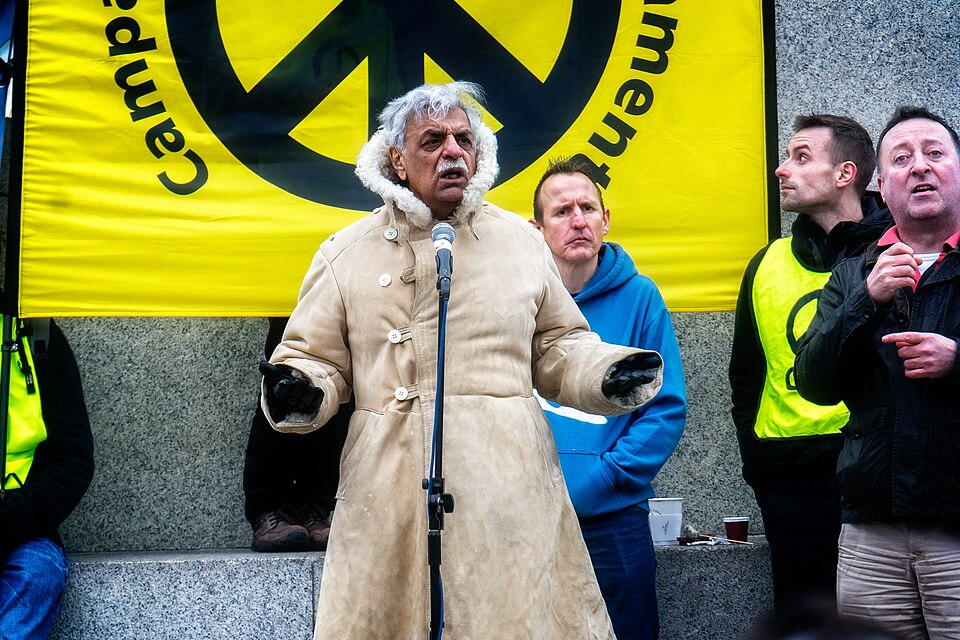
You Can’t Please All:
Memoirs 1980-2024
By Tariq Ali
London: Verso, 2024, 816 pages, $44.95, hardback.
Until We Fall:
Long Distance Life on the Left
By Helena Sheehan
New York, Monthly Review, 2023, 360 pages, $28, paperback.
An Ordinary White:
My Anti-Racist Education
By David Roediger
New York: Fordham University Press, 2025, 256 pages, $26.99, hardback.
Global Battlefields:
Memoir of a Legendary Public Intellectual from the Global South
By Walden Bello
Atlanta: Clarity Press, 2025, 356 pages, $30.95, paperback.
Political Apostates and Committed Radicals
THE DEATH IN April of Communist-turned-Trump-booster David Horowitz (1939-2025) elicited extravagant attention in the national press to the tune of over 100 obituaries and tributes. As one who keeps tabs on the fortunes of Marxist intellectuals in contemporary life through periodic appraisals such as this present review essay, I found it an unsettling reminder of the degree to which the public is uniquely mesmerized by Left-to-Right political apostasies.
In contrast, there seems to be a relatively blasé attitude toward those who — like the authors of the four autobiographies I will discuss — have stayed in the socialist movement for the long haul. These writers are: Tariq Ali (a Pakistani-British writer born in 1943 in Lahore), Helena Sheehan (an Irish historian of science born in 1944 in Philadelphia), David Roediger (a U.S. historian of “whiteness” born in 1952 in Columbia, Illinois), and Walden Bello (a Filipino sociologist and human rights activist born 1945 in Rizal). Each might be seen as self-fashioned vectors of the spirit of the revolutionary Left that emerged in the mid-20th century.
In distinction, time after time, for over 60 years, Horowitz generated headlines while he racked-up ex-ideological positions as regularly as he shed ex-wives. Yet in the well-worn tradition of the defector motif, Horowitz’s devolution is typically the road most traveled for one variety of deradicalizing intellectuals; those who start out among the have-nots but progressively seek to join the have-yachts. And let’s face it — originality was never going to be Horowitz’s strong point.
His appropriation of others’ ideas started with a bit of borrowing from Marxist Isaac Deutscher in Leftist books such as Empire and Revolution: A Radical Interpretation of Contemporary History. (1969) Later, in Radical Son: A Generational Odyssey (1998), he titillated readers by combining his Mini-Me Whittaker Chambers impersonation with a low-rent version of St. Augustine’s conversion to Christianity after an amoral youth.
Ultimately, in The Professors: The 101 Most Dangerous Academics in America (2006), he launched a farcical replica of Joe McCarthy’s persecution of academe through a witch-hunt against younger versions of himself. Along with his creation of “Islamo-Fascism Week” on college campuses, and his mentoring of vomitous Trump advisor Stephen Miller, Horowitz earned a place in the Right-wing pantheon as little more than a pathetic embodiment of Hannah Arendt’s banality of evil.
Nevertheless, the notoriety accorded Horowitz’s tawdry reboot of the deradicalization playbook prompts me to here pay special attention to a more appetizing topic of moral seriousness and creative defiance. In what follows I will consider aspects of a new crop of life stories of committed radicals marked by an admirable political tenacity to youthful ideals, ways of living fully and authentically to the end.
All four, of course, have developed, enhanced, and adjusted their thinking through decades of activist experiences, moving forward to more nuanced understandings. Nonetheless, since political awakenings in the late 1950s and ’60s, they have variously managed to mostly stand firm against the temptation to tack with the winds of privilege and power.
There are indubitably variances, incongruities and views held from which one might dissent; but all have kept rowing in the same direction toward an emancipatory future. These four who have stayed the course deserve at least as much notice as those like Horowitz who have switched sides, often with the go-to excuse that it has been the Far Left that has changed, not themselves.
Complicated Journeys
Still, a kind of “spoiler alert” is required when autobiography is the focus: One must be upfront and affirm that, for me at least, it is the radical political movement itself — especially socialism — that expresses collectively the chief virtues: heroism, self-sacrifice, humanity and intellectual acuity. The sundry individuals who guide and inspire the movement as intellectuals and activists are just as flawed as any human being. One can be brilliant and generous yet have harmful blind spots.
Sometimes motivations can be baser and more pragmatic than one would like to admit. Customarily the theme song is “No Regrets,” and it is easy to obscure one’s illusions with pious inaccuracies because we are all trustworthy witnesses to our own perceived experiences. Autobiographies can also function as late-life brand management, and it could be that a few Left-wing authors of such books have some far less attractive-looking Dorian Gray portraits hidden away in their attics.
Like the rest of us, socialist leaders can become addicted to attention, especially the dopamine of an intoxicating sense of being at the center. Some are drawn to microphones as if by a magnet and deeply devoted to “not-my-faultism” when it comes to failures. We won’t even dwell upon how they can become victims of their own runaway rhetoric. (I have no need to talk about other people; I’d surely cringe if someone dug up my columns in the Antioch College newspaper around 1968.)
If you are dependent on a leader to tell you how to act and what to do next, I suggest you look for one who does the least damage. The complete stories of even the best Marxist gurus are remote from Alvin Butler’s Lives of the Saints (1756-59). Socialist politics can be messy, complicated, and frustrating — yet not without delights when a strike is won, a student protest is victorious, a political prisoner is freed, or a Marxist book or article wins the recognition it deserves.
If the search for perfection in character is a fool’s errand, what, then, is the actual issue I want to address in the four volumes of this condensed and selective review? It’s not so much any belief that the four have consistently held “correct positions” — which I certainly haven’t. Nor is there a desire to revisit old sectarian debates, like a dog returning to its vomit.
It’s more about what we can learn in a general sense if we ask tough and critical questions about their protracted and complicated journeys, ones that can help rebuild a new and more effective socialist Left. Only by seeing what we have achieved and what is still missing might we build a kind of “institutional memory,” one that can help with the hard political reset that the Far Left so desperately needs.
How do we understand their past, not as curious relics but as vital precursors — a means to shape a better future if we can figure out what might be strengthened?
I hope that what follows is neither a political charge sheet nor wallowing in hindsight, but a look at a few aspects of how these “Lions in Winter” — all well past 70 — now come to grips with their sometimes-thorny political lives. Descriptions of all four works will be capped by several critical observations in the context of acknowledging the limitations of the special category of autobiographical writing. What do the books tell us about the mixed inheritance of activist-scholars-public intellectuals who lived long lives on the Far Left?
A League of His Own
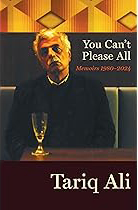
Tariq Ali is certainly the Lebron James of the group, a true ripper when it comes to oratorical and literary talent. As in so many other ways — author of some 50 books, scripts for stage and screen, longtime editor of New Left Review — he is in a league of his own as a public intellectual and Marxist political activist with special expertise in South Asia, Afghanistan, and Iraq. One will have to consult Wikipedia to get an overview of his extraordinary achievements, and consult the outstanding first volume of his memoirs, Street Fighting Years: An Autobiography of the Sixties (1987, dedicated to Marxist economist Ernest Mandel, 1922-95), for details about his political background before 1980.
It was through leadership of the United Kingdom’s Vietnam Solidarity Campaign that Ali first came to wide attention. (Personal disclosure: As an exchange student at a “workingman’s college” in Birmingham, England, I participated in the Campaign’s October 1967 demonstration of 20,000 when we ignored police warnings not to enter Grosvenor Square and nearly occupied the U.S. Embassy in London.)
In 1968, Ali joined the International Marxist Group (IMG), affiliated with the United Secretariat of the Fourth International. Soon he became something of a Trotskyist Zelig who was everywhere and knew everybody of consequence. From then on, aided by strikingly good looks, he was permanently ensconced as the “It Leninist” in the broader Left who brought an inspiring aura of Marxist erudition to everything he touched. All this makes me feel a bit like a country mouse.
Undeniably Ali has critics, across the political spectrum, who accuse him of being the Enfant Terrible of a British Left-wing intellectual elite, a shameless showboat, a sunflower bending toward whichever light shines brightest, and part prankster and part wise-ass not immune to hi-jinks and mischievous behavior. That last point may well be true, and he has occasionally flabbergasted comrades on the Far Left with positions such as a sympathy for Boris Yeltsin (to whom Revolution From Above, 1988, was dedicated). Still, his overall anti-imperialist credentials might be as good as it gets for a high-flying figure trying to navigate the Left’s turbulent and often convoluted history.
With Ali, as I expressed in an Against the Current review of his The Extreme Center (2015),(1) we don’t get a by-the-numbers version of a revolutionary life. He is always idiosyncratically himself, sharp and unflappable, and his volume offers many richly textured and revelatory accounts mixed with others that may be puzzling or underbaked.
This brash non-conformity is unmistakably reflected in the design of his memoirs, an 800-page behemoth with a classy cover. It features Ali brandishing something akin to the facial expression popularized by supermodel Tyla Banks as “smizing” — neutral countenance, communicative eyes.
The book’s size alone warrants most of our attention in this essay, although some might find it an endurance test to reach the end. Nevertheless, I quickly became addicted via Ali’s earnest curiosity about the lives of others and the way his political thinking swings along with the stream of history. He has more than a knack for making his own fascination with a subject contagious, and I suspect that, like me, he knows he can best master a point at issue by writing about it.
New Wave Sensibility
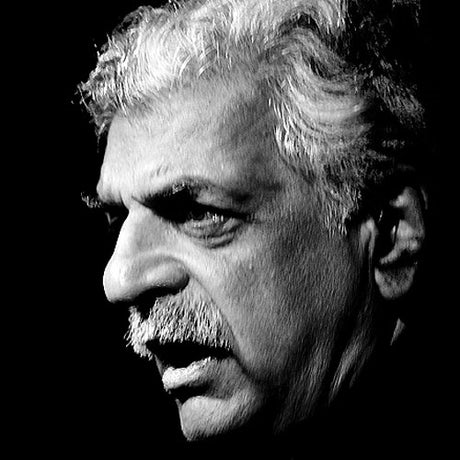
Our three other autobiographies tend toward the standard narrative strategy of “and then, and then,” sometimes tripping through the decades with alacrity and other times a bit tediously. Ali’s method of editing his material recalls something of a New Wave film sensibility with unconventional shifts (on occasion from comic to serious), combing elements of realism, subjectivity, and authorial commentary. Although he weaves in and out of this still-vivid past without any nostalgic gauze, his focus on classical Marxist concerns — labor, anti-colonialism, socialist scholarship — still makes him come off as something of an emissary from a vanishing political culture.
A brief preface to the volume reminds us of Ali’s anti-imperialist credentials with reference to the first public demonstration that he organized in 1961 in Lahore, against the CIA assassination of Congolese nationalist Patrice Lumumba.
He then moves on to explain the book’s structure: “Because a chronological, narrative account was not possible for reasons of length…[I] instead sketch a constellation of encounters and engagements that have marked an active life.” Moreover, “Some are sourced from previous writings, some include unpublished extracts from diaries and fragments, others still (very few) come from talks or blogs; many of the pieces are new, others are borrowed from my own archives.” (xiv)
This is followed by an Introduction explaining that the catalyst for You Can’t Please All was his participation in a November 2021 investigation into police spying on the British Left, an inquiry ordered by the Conservative government some years earlier. After this are three “books,” two of which are subdivided but contain 50 units individually numbered, and then a fourth book that is called simply “Jottings” and has another 32 unnumbered units.
The climax of You Can’t Please All is fittingly a powerful 11-page “Epilogue: The Ashes of Gaza.” Its opening sentence might serve as a shorthand for Ali’s perspective as a whole: “Eric Hobsbawm argued that the twentieth century was short, starting in 1917 and ending with the collapse of Soviet Russia in 1991. However, it is turning out to be a much longer century for those who remain oppressed by capital and empire.” (740)
What is encompassed in these pages is a mind-boggling kaleidoscope of memories that includes a personal presence at the end-days of the Soviet Union; a friendship with Venezuela’s Hugo Chavez; portraits of many associates in the international Left; vignettes of his work on novels, films, and New Left Review; and a wonderful biography of his parents that shows how he was, politically speaking, “to the manner born.” Described is also a break from his activist political marathon in the late 20th century, from which he has now returned in full force.
Mostly it’s a virtuoso performance — perceptive, at times aerodynamic, rich in artistry and in specifics. Now and then, there are some energy dips (due to occasional potted histories, as in the chapter on “The Need for Translations”) and missteps (in lack of political clarity, such as declining to use his expertise to provide much political guidance for understanding the Islamic resistance group Hamas). His references to various New Left Review editors and schisms might seem cryptic, even for a life-long reader as I am.
Most entertaining, perhaps, is the panache with which Ali depicts himself: writer, agitator, iconoclast; a political streetfighter on the battlefield of ideas with no interest in compromise when it comes to anticolonialism or U.S. imperialism. He often showcases a keen wit outfoxing opponents with clever reposts, a master of the political kill shot.
The ex-radical intellectuals becoming “empire loyalists” at the new millennium are dubbed “the belligerati.” In a lethal take-down of Salmon Rushdie’s apostasy, he writes: “Rushdie posed naked for the cover of a French magazine, draped only in the Stars and Stripes — the sole occasion on which I felt grateful for the flag.” (377) Over the years Ali has maintained a kind of immutable persona but a mind that can’t stay still. Autobiography is a topic terrifically suited to his many gifts.
A Sense of the Vertiginous

Like Ali, Helena Sheehan has done plenty of hobnobbing with Marxist super-stars. She is a U.S.-born Irish Marxist scholar notable for her international academic impact on the fields of the history of science, philosophy, culture, and politics. Above all, her Marxism and the Philosophy of Science: A Critical History (1985, 2017) is widely admired as a major resource for debates over the philosophy of science from Engels in the 19th century to the post-World War II era.
Her unique political journey is also well-known, due to her evolution from the Catholic Right to the Far Left. Today she holds that the Communist system has certainly died, but that its death is not a defeat for the ideals that have inspired its adherents for decades. Moreover, Marxism remains the gateway to understanding science, both in its human connections as well as a path of access to the natural world.
As recounted in Until We Fall, Sheehan taught media studies and the history of ideas in the School of Communications at Dublin City University for decades and is now professor emeritus. She was also a visiting professor at the University of Cape Town, the subject of an entire chapter, and Peking University, and has given many conference papers and public lectures in universities and other bodies in the United States, USSR, GDR, Mexico, Canada, Ireland, UK, France, Germany, Italy, Czechoslovakia, Yugoslavia, Greece, China, and South Africa.
Born in 1944 to a conservative, Catholic family, Sheehan was originally a primary school teacher as a nun in Philadelphia, but in 1965 she developed into an agnostic and liberal. Soon after Sheehan evolved to an atheist and radical, graduating from St. Joseph’s University in 1967, receiving a MA from Temple university in 1970, and finally obtaining a PhD in philosophy from Trinity College (Dublin) in 1980.
As explained in the first volume of her autobiography, Navigating the Zeitgeist (2019), Sheehan was active in the New Left in the United States. Then, in Ireland, she joined Sinn Féin (Official) in 1972 and the Communist Party of Ireland (CPI) in 1975. Chair of the Trinity College Dublin Communist Society, she also joined the Labour Party in 1981, where she was a founder of its Labour Left faction.
Later, after 2011, she belonged to no party, disgusted with the dogmatism she experienced, but remained active by organizing Occupy University during the Occupy movement. She often travelled to Greece as well, becoming involved with Syriza, and producing a book called The Syriza Wave. (2017)
As a philosopher and historian of science, Sheehan writes from a classical Marxist perspective, albeit critically of Lysenkoism (which rejected Mendelian genetics) and Stalin’s impact on scientific development. She is a strong opponent of both positivism and postmodernism, while stressing the necessity of understanding such trends in full socio-historical context. In her personal life, Sheehan was the partner of the prominent trade unionist Sam Nolan, the secretary of the Dublin Council of Trade Unions who died last year at 93.
The central theme of Until We Fall is the breakup of the Soviet Union. Most remarkable are the reports from her position as a close-up observer of the process in which she gives a sense of its vertiginousness in daily life. The transition from one system to another in the Soviet bloc was replete with contradictions and the unexpected, and she tries to recreate this experience by seeing “history from below.” (7)
Sheehan is especially compelling in providing a combination of this personal and political history at once, although it is more through conversations with various activists and scholars than sustained socio-economic analysis. As she reports, some ostensible Marxists and Communists rapidly changed their views to accommodate new opportunities for advancement, while others (like Sheehan) felt their emotions at first lifted by glasnost and perestroika, then devasted by what followed.
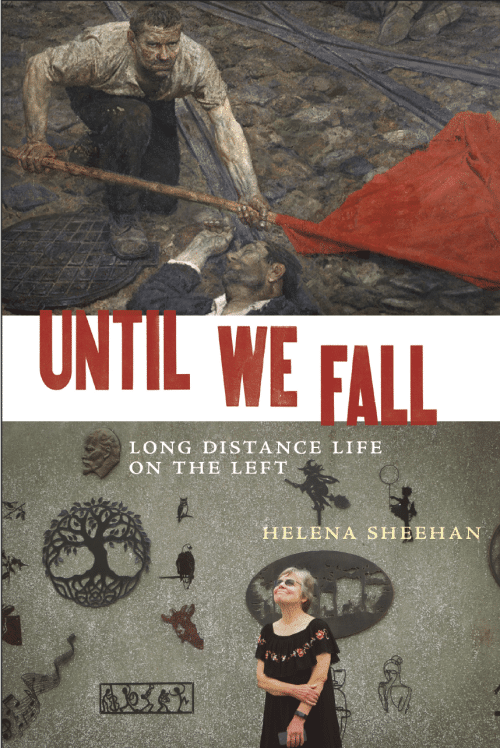
Much of the volume is taken up with descriptions of conferences and scholarly presentations where Sheehan is generally well-received. Some might see her tone here as a bit self-congratulatory. Compared to Ali’s memoir — an unfair benchmark, to be sure — her writing feels dutiful more than animated. Perhaps it’s because Sheehan isn’t as skilled in repurposing experiences for captivating storytelling fodder. Paragraphs such as this one about Moscow are too common: “I did a lot of freelance journalism, I wrote a media column for the New Nation. I appeared on many arts and current affairs programs on radio and television. I wrote reviews and cultural commentary for various publications….” (109)
Although sometimes rather simple and inelegant, her writing can go directly to the point, as in this report on post-Soviet encounters in Eastern Europe: “I had numerous occasions to speak to…intellectuals of different countries, generations, and points of view in these years. There was so much dishonesty and denial. It extended even to the dead. I was profoundly distressed to read obituaries of those I knew as Marxists, whose Marxism was never mentioned.” (137)
Still, in her acknowledgement that “history has rushed onward with a speed and scale…making me feel as if I have lived epochs in decades” (8), there is a tendency to sacrifice depth for breadth. Some of her numerous episodes about various welcomings and reunions with old friends in various countries may seem about as interesting as a heartwarming holiday tale.
More problematic is that, as Sheehan navigates this difficult period, her exact relationship to Stalinist states and history remains frustratingly opaque. Names such as Stalin and Mao are not in the index; Putin is mentioned only once. She spends much time in the German Democratic Republic before and after its collapse, but here is her characterization of it: “I knew the country was something more than the gray prison it was portrayed to be.” (77)
For the most part, Sheehan is a companionable guide, but sometimes she moves on while barely taking notice of one matter or another, and far too many names are dropped without providing multidimensional portraits that might make her associates live and breathe. Even so, Until We Fall, a necessary record of often troubling encounters in a changing world, is movingly leavened with impassioned remembrances of the socialist ideals that have come under siege. These culminate in the penultimate paragraph of her final chapter, “No Surrender”: “With a strong sense of my time running out, I long to see the left rise again on a significant scale and turn the tide.” (341)
The Cage of Whiteness
The unique focus of David R. Roediger’s political life has been an analysis of the cage of “white” identity — the harm it does to oneself and others. In his view, under capitalism, even if working people have white advantage (what Du Bois called “the wages of whiteness”), they are still impeded from addressing the forces that shape and immiserate their existence: “whiteness separates whites from…a vital labor movement, an even rudimentary welfare state, a critique of empire and settler colonialism, meaningful planet-saving political coalitions, and humanity.” (219)
Roediger’s academic career has evolved almost exclusively through public institutions. Since 2014, he has been the Foundation Distinguished Professor of American Studies and History at the University of Kansas. Previously, he held positions at the University of Illinois at Urbana-Champaign (UIUC), and before that the University of Minnesota and the University of Missouri.
In An Ordinary White he crafts a sensitive, conscientious account of his life and work as he looks back on his political and scholarly progression through clear, judicious prose.
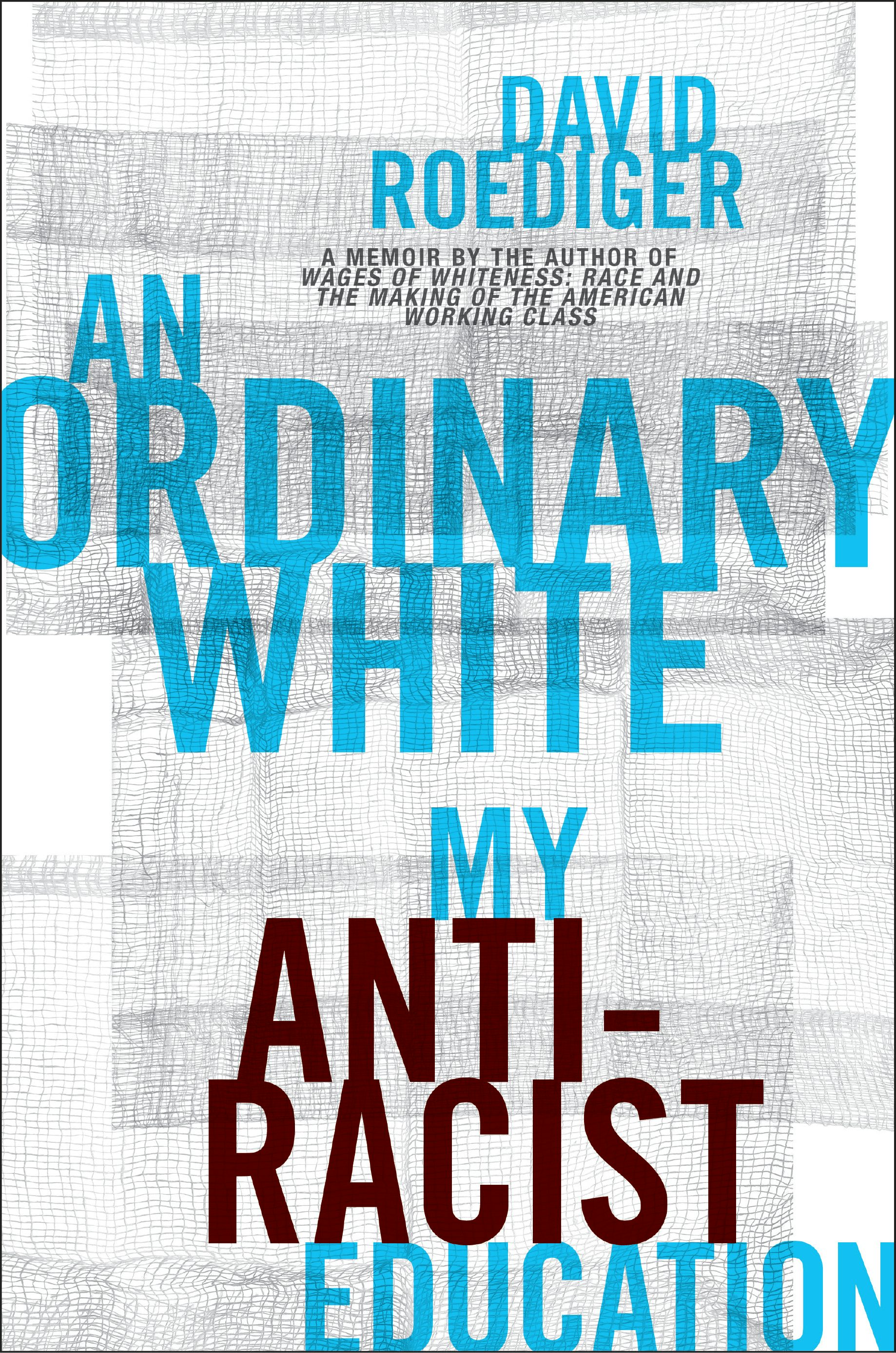
Born in the southern midwest in a segregated town and from a broken family, Roediger attended local public schools through high school, and encapsulates this experience by way of a socio-political history of the region that dominates his first 33 pages. It’s an origin story of ordinary — but not necessarily typical — white experience that is critical background for his report on how and why his life began to deviate from those around him.
Aided by his prowess at tennis, Roediger earned a Bachelor of Science degree in education from Northern Illinois University in 1975. Afterwards he pursued graduate study and earned a PhD in history from Northwestern University in 1980. He was also assistant editor of the Frederick Douglass Papers at Yale University from 1979 to 1980. As Roediger explains, his future unexpected moment in the spotlight followed years of grueling research. The donkey work involved in academic life is not neglected.
Roediger describes in his memoir how, in 1989, he and historian Philip Foner co-authored Our Own Time: A History of American Labor and the Working Day. The book, published with the comparatively undistinguished Greenwood Press, broke new ground by combining labor history with a study of culture and the nature of work. Yet it gained little traction until it was picked up and reprinted by the Verso publishing house.
Then things suddenly lurched into gear as Verso brought out The Wages of Whiteness: Race and the Making of the American Working Class two years later. The book now has classic status as among the starting points of contemporary “whiteness studies.” This is a field that methodologically weaves together economic theory, psychology, and the histories of immigration, industrialization, class formation, and slavery.
Why, Roediger asks, have working class Blacks and whites historically not found common cause in their shared suffering at the bottom of the social ladder? His analysis was carefully discussed by Roger Horowitz in a 1997 Against the Current review.(2) Subsequently Roediger researched the interrelationship between labor management and the formation of racial identities in the United States, which I discussed in my 2018 article in Against the Current.(3)
An Ordinary White provides the backstory to Roediger’s path-breaking scholarship over the years — how he became an anti-racist activist and an intellectual from out of his non-elite background. Although his research interests primarily concern race and class in the United States, he has also written on radicalism in American history and politics.
Central to his thinking as it advanced is that white workers are not mere passive receptors; they are also active agents complicit in creating and circulating racist ideology that ultimately blights their lives. Moreover, the way to non-racialism is by confronting and going through the race question, the aim of which is to produce anger at injustice — not guilt.
This is a different orientation from trying to avoid the matter by blaming the ruling class, or by prioritizing other kinds of issues, political demands, and topics for analysis and promoting class unity. Racism is not simply due to the manipulation of workers by their exploiters but also their own embrace of a white identity. Nevertheless, Roediger holds that white privilege is “fathomable — based on knowledge and experience many whites already hold.” (xi) Thus, white working people, from their own experiences, can come to understand and overcome racism.
This approach has earned Roediger hostility not only from the white supremacist Right, due to his close alignment with their current bogeyman — Critical Race Theory, which refers to legal concepts based on the idea that race is socially constructed to oppress. A number of radicals and Marxists have also charged Roediger with a promoting a notion of whiteness too vague to pin down, allowing it to function as a kind of original sin that simplifies motives and causality.
The literature on this dispute is substantial and challenging. Part of Roediger’s aim in his memoir is to calmly and concisely toggle among these critiques from both sides to illuminate his genuine aims.
An Ordinary White also intends to be a something of a soup-to-nuts autobiography, detailing how Roediger emerged from this working-class background to become not only a noted academic but also a committed radical. It follows his political journey as a younger member of the New Left whose unusual sensibility led him to join the Chicago Surrealist Group and the historic socialist Charles H. Kerr publishing house.
None of this was simply an intellectual conversion to Marxism but a qualitative change in the meaning of his life, the culmination of a search for authenticity. As he puts it in the title of Chapter 4, the Left “Saved” him. His 1969 membership in SDS (Students for a Democratic Society) put him on the road toward a future where individual and collective flourishing might be conjoined.
An Ordinary White is diligent in tracing the development of Roediger’s thought through his writings and mentors, such as George Rawick (1929-1990) and Sterling Stuckey (1932-2018). Yet his self-portrait, which mentions loads of other associations, sometimes feels inattentive to clarifying the political specifics of his various engagements.

To take just one example from his formative period, he spends most of pages 59 to 62 describing his activities in SDS at the time he signed up in 1969. He acknowledges that the organization he joined was by then under the influence of Progressive Labor Party (PLP) and not the same as the SDS of The Port Huron Statement or the Revolutionary Youth Movement. Yet exactly what this meant in theory and practice will be hard to grasp from his fragmented references, and an emphasis titled toward the problem of the alienating “behavior” of members and lack of “cultural” appeal. (61) Later he contrasts PLP and the International Socialist Organization only by saying that the two were “wildly different.” (129) Still, it’s likely that readers who are not well into their Social Security benefits could care less about these old factional disputes.
More germane might be the lack of a more rounded depiction of the Chicago Surrealist Group. Roediger has been a long-time figure in this movement and it seems to rate as his most significant Left political affiliation. Yet he fails to pull back the curtain on the inner workings of the movement, or to tell us much about its politics. This has special significance to those of us drawn to surrealist literature and art, and many of its historic figures, but who sensed (perhaps wrongly) that the Surrealist Group’s vanguardist sectarianism was not unlike certain political cults.
Personally, I recall being stunned when in 1971 I purchased their pamphlet called “In Memory of Georg Lukács.” It begins by denouncing one of the great Marxist intellectuals as an example of “servility, sickness, corruption, weakness, degeneration, degradation, masochism, cowardice, prostration” — and the vituperation gets only worse from there.(4) Likewise, although I had pleasant interactions with several Surrealist spokespersons, such as the poet Philip Lamantia (1927-2005), there were other prominent figures who seemed completely unstable and out of control — most notably Stephen Schwartz (now known as Lulu Schwartz).
Perhaps it is Roediger’s focus on his intellectual journey and concern with his thesis about whiteness that results in a downplaying of the ins and outs of certain activist commitments and their connections to theory and history. Notwithstanding, from first-hand knowledge of my own and from many of his colleagues, there is no doubt that Roediger has a sterling reputation as earnest, likeable, and generous with a strong work ethic. The result is that An Ordinary White is a memoir that is respectful, engaged and unpretentious, even including a sensitive section on illness and mortality.
Storming the Gates
Much like Ali, Walden Flores Bello is close to a global celebrity. Beyond that, he outdistances all these autobiographers through his smooth blend of extraordinary activist commitment with an academic career that spans several countries. Global Battlefields showcases a gifted and principled man driven by an outsider’s ambition to storm the gates of an oppressive social order.
In terms of titles and positions, Bello is most recently an international adjunct professor at Binghamton University, while also professor of sociology and public administration at the University of the Philippines at Diliman. He has served as a member of the House of Representatives of the Philippines and executive director of the regional policy think-tank Focus on the Global South.
He is additionally the founder and chairperson of the democratic socialist electoral coalition alliance Laban ng Masa (Fight of the Masses). And in the 2022 Philippine elections he was the running mate of labor leader Leody de Guzan in the unsuccessful presidential campaign.
His parents, Luz Flores and Jesse Bello, were artists in Rizal, sending Waldon to the Jesuit school Ateneo de Manila. From there he went to do graduate work at Princeton University where he became an activist in the anti-Vietnam War movement. Again, like Ali, he begins the narrative of his political exploits with participation in a dramatic protest; in this case, leading an occupation of the Woodrow Wilson School of Public and International Affairs (in 2020 renamed the Princeton School of Public and International Affairs, due to Wilson’s well-known racism).
Now thoroughly radicalized, he traveled to Chile and stayed in shanty towns to conduct graduate research following Salvador Allende’s rise to the presidency in 1970. When he returned to the United States to defend his dissertation on Chile, he lost his ability to return to the Philippines; his passport had been revoked as a result of the declaration of martial law by President Ferdinand Marcos in 1972.
After receiving a Ph.D. in sociology 1975, Bello became part of the anti-Marcos movement while he commenced a teaching career at the University of California at Berkeley. He also joined the Communist Party of the Philippines and his activism led to his being arrested multiple times during protests.
The most sensational incarceration came in 1978 when he led the takeover of the Philippine consulate in San Francisco. This was followed by a hunger strike to bring attention to U.S. complicity with the dictatorship in the Philippines.

As described in detail in this autobiography, Bello subsequently broke into the headquarters of the World Bank and stole 3,000 pages of confidential documents showing the connection of the IMF and World Bank to Marcos. Shortly afterwards, he published Development Debacle: The World Bank in the Philippines (1982), which he believes contributed significantly to the 1986 “People Power Revolution.” These were non-violent protests that forced Marcos out of power, after which Bello could return to his native state.
In 1995, Bello co-founded Focus on the Global South, a policy research institute based in Bangkok, Thailand, and three years later he led teach-ins during the World Trade Organization (WTO) protests in Seattle. This was followed by similar demonstrations at the 2001 G8 (Group of Eight) summit, the 2003 WTO Ministerial Conference, and more.
Bello began to turn away from the Communist Party of the Philippines after he heard that it allegedly killed thousands of individuals in the 1980s and 1990s — members dubiously accused of being double agents during the infamous “Anti-DPA (Deep Penetration Agent) Campaign.” These shattering revelations and events forced Bello to painfully break with former comrades and the party leader, Jose Maria Sisson (1939-2022), who would denounce Bello as a traitor.
Bello later joined the Akbayab Citizens’ Action Party and became a member of congress in 2007. In March 2015, Bello resigned his position in congress due to conflicts with President Benigno Aquino III. He ran for senator in 2016 but lost.
Today Bello is on the board of directors of the International Forum on Globalization and on the board of directors of the leftist think-tank Center for Economic Policy Research and a member of the regional Greenpeace, but political harassment continues.
In August 2022, he was arrested by the police in his home in Quezon City. This was the result of a June indictment stemming from a complaint filed by a former Davao City information officer that was denounced by the European Parliament and the Asean Parliamentarians for Human Rights.
The sprawl and prolixity of this book, due to so many events covered, and compounded by very small print, will certainly be a challenge — especially for those unfamiliar with the Philippine Left. Bello does make periodic attempts to briefly take the reader behind the political mask to more intimate matters, allowing us to catch a few glimpses of the elusive self. There are references to his pot-smoking and even a page on “Women and Me.”
Even so, one senses that he, too, sands down the edges of private life to make it more palatable for a general audience. Apparently, he has never had moments of cowardice, carried out a vendetta, engaged in a turf war, or acted out of pure self-interest. Nevertheless, Bello has led a spectacular life and Global Battlefields is utterly fascinating even where it is not entirely satisfying.
Performances of Memory
As is well-known, a “Lion in Winter” is hardly a trouble-free elder, qualities memorably dramatized in the 1966 play (and 1968 film) about Henry II and his apprehension about what will succeed him. And then there is another layer of complexity already indicated: What we have before us in these books are not independently researched biographies at some critical distance. They are memoirs and autobiographies, well-known to be a species of fiction.
“Inspired by real events,” they certainly are, but the operative word is “inspired”; the difference between remembered experience and imagined experience can be hard for any of us to break down. Even when expectations for factual accuracy must be adjusted, a presentation of the story of one’s own life is closer to a performance of memory. It’s a depiction of the way one would like others to see oneself — like a Facebook page’s portrayal of friends, family, vacations, accomplishments, and self.
Characteristically, books by political people on the Left are weakest in personal revelation and a willingness to expose their own frailties, with protagonists coming off as emotionally available to few others. Spouses and partners appear mainly in fleeting references even though many such relationships were probably dynamic unions of creative and committed equals. While such books are not exactly prudish, little is revealed about the sexual shenanigans and partner-switching in radical movements — potentially enough to keep a brigade of gossip-mongers busy.
So, if you are looking for memoirs of a bare-all, tell-all character, you might put these down and instead purchase Molly Jong-Fast’s How to Lose your Mother (2025) or Edmund White’s The Loves of My Life: A Sex Memoir (2025). I say all this as factual description of the genre, not a criticism. Most of us would not be up to the interrogation of all aspects of our personal lives.
On the other hand, the good news is that none of our four volumes ever lapse into self-pity. All the authors have that rabbinical desire to teach anyone who will listen. Their productive lives at the service of humanity comprise a refreshing alternative to the painful remembrance of so many long-ago comrades with superior talent who flamed out early. Some were perhaps abused by the Left or pushed themselves to exhaustion, but others went on to expend their much-needed gifts on mainly hedonic pursuits.
Readers will no doubt focus on their own priorities, but to peruse these volumes is to feel more than ever that the activist pasts recorded here cannot simply be written off. Elements of this older Left, if studied, discussed and augmented, can be more than just talismans for a newer one or a more potent counter-hegemonic culture. Critically understood, they provide details of both usable and unusable pasts, and of experiences teeming with radical possibilities that speak directly not only to the aspirations of the generation of 1968 and but also new millennial socialism.
Look Back in Perplexity
Not surprisingly, one is also faced with a Goldilocks problem. Some of the political guidelines suggested by these diverse narratives seem too hot, others too cold, and few just right. Yet the four memoirs ultimately fit together — maybe a bit awkwardly — like pieces of a broken puzzle. Even with lacunae and missteps all four speak to sustaining our socialist mission, uncertain and incomplete as it remains.
First off, it’s clear that three of these radical lives provide strong evidence that one does not have to choose between a career as an industrious university scholar and as a committed activist. To do both successfully is possible, and the narratives of Sheehan, Roediger, and Bello, if read closely, offer ways of negotiating these obligations so that one plays off and enhances the other. This is far more promising than the argument one sometimes hears that scholarship alone will serve as one’s political contribution, or that those with academic talents must leave the university to “colonize” unions to become true revolutionary cadres.
Related to that, however, is the dilemma of “party commitment,” a matter I wish had prompted reflection in greater detail. Ali spent over a decade in the IMG, eventually concluding that small groups are a dead end. Although he never again joined anything similar, he obviously has warm feelings about many of his IMG experiences and comrades. This is especially the case with Ernest Mandel, the subject of a poignant chapter (“A Burial at Père Lachaise”). Still, as with any marriage gone bad, Ali is not above a bit of small-time score-settling with the Fourth International. This especially pertains to rumored reactions to his satirical novel Redemption. (1990)
Roediger passed through several organizations, not only the ones already mentioned but also for several years the Red Rose Collective, based in a Chicago bookstore. He defines himself, however, as among the “fellow-travelers,” asserting that: “they and the non-party left constituted a healthy part of the radical movement, and we [need] institutions capable of supporting them in staying left rather than only calls to join the building of a party.” (85) The problem is that neither this view nor Ali’s stance are helpful in overcoming the need for an emancipatory organization and presenting us with accumulated wisdom as to how it might be built.
All the same, in some respects Ali and Roediger stand together in a very different political location from Sheehan and Bello. Neither was appreciably drawn to organizations from a tradition based on a statist conception of authoritarian socialism, namely Stalinism or Maoism. Both would endorse the fine quotation from C. L. R. James (1901-1989) that Ali includes in his reprinting from a July 1980 Socialist Challenge interview: “I do not subordinate myself to any state.” (67) I also think both would agree with me that one can’t be a Marxist anti-Stalinist without also being an anti-anticommunist.
As we know, the personal organizational affiliations of both Sheehan and Bello ended in a decisive manner only with the collapse of the USSR in 1991 combined with the repressive organizational culture of the Communist parties of Ireland and the Philippines. Bello acknowledges, powerfully and frankly, the 15 years (1974-89) “when my subjectivity was totally submerged in the collectivity, the Communist Party of the Philippines, where I was, for the most part, obedient to central party decisions — in the stereotyped manner of the party member governed by democratic centralism….” (285) Sheehan discloses nothing similar although there are suggestions that the years of her CPI involvement were quite conflicted.
Here I think we can see the need for fuller and more thoughtful reactions to such troubled realities of the Marxist past, since some movements of today still retain habits of mind, organizational cultures, and political outlooks variously tied to authoritarian socialisms.
Why is it that the Maoism that Bello experienced so closely resembles the Stalinist record in many respects? Like the sectarianism one so often finds in Trotskyism, are the Stalinist and Maoist traditions the equivalent of forever chemicals that will live on and do damage unless confronted and expunged?
Here I must confess to looking back in utter perplexity when I reached the section called “A Few Lessons” in Bello’s memoir. In 2025 he informs us that “the seeds of the collapse in 1988-1991 [of the USSR] were probably already present [in 1917]” mainly “in [the] sacrificing [of] democratic participation and respect for individual rights in the pursuit of egalitarian social transformation.”
He goes on to insist on the need to “institutionalize these two principles, democratic participation and respect for individual rights.” (289) Yet these very points have been made by dissident communists for nearly one hundred years — what kept Bello from recognizing or acknowledging them until now?
Reckonings
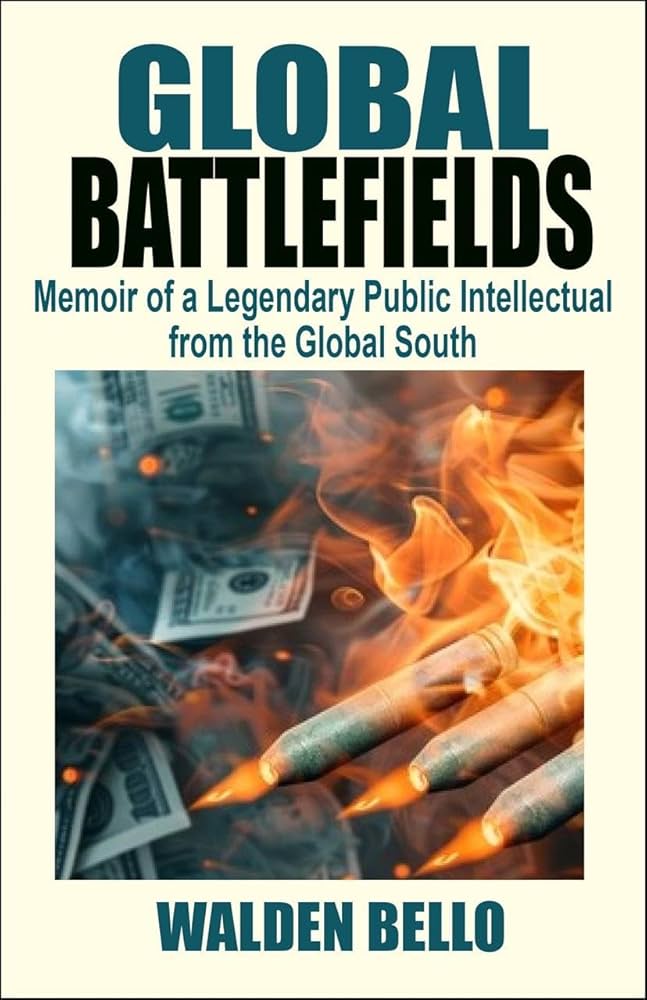
At the same time, there are points made in Bello’s effort to extract and provide “lessons” that strike me as worthy of fresh consideration, development, and present-day application. For example, in reflecting on his post-Maoist activities, Bello notes that his idea of acting as a “progressive” means “having a vision about how society should be organized based on the values of equality, justice, solidarity, and sovereignty. It means having a political program to realize this vision. But it also means projecting an ethical, moral stance.” (235)
In his final chapter, “A Reckoning,” Bello repeats this point but adds in a warning that an absence of “ethics, a moral stand…would lead to pure instrumentalism,” which he links to the need for “a strong moral compass” to avoid the “self-inflicted tragedies of the left.” One example he offers is that “the worth of an individual cannot be reduced solely to her or his ‘class position.’” (284)
In none of these memoirs are such issues thoughtfully developed. Of course, no one would suggest that a Marxist view of ethics and morality is a simple matter to address. The question of whether there can be an “objective basis” for moral beliefs is the subject of numerous tomes, far above my paygrade to quickly summarize. Too often, abstract morality apart from context doesn’t work, and “moral certainties,” “moral dichotomies,” and “moral equivalencies” can all be dangerous.
Yet this is a burning question for revolutionary politics. We all know that a “cause” — such as a liberation movement — can certainly be moral; but is every effort made on its behalf also a “moral” one? Plainly the U.S.-and-Israeli-sponsored genocide in Palestine is “immoral,” but is it then a “moral” act to violently target anyone who abets those regimes? Are human rights a universal value or selective?
Is the goal of Marxists just to hurt the class enemy wherever we can, to win at any price, regardless of collateral damage? Or are we obligated to tactfully criticize actions, behavior, and political programs that might make things worse?
Can we really gamble on the lives of others without their consent on a far-from-guaranteed utopian future? Is pointing to mistakes or even atrocities by members of a colonized population tantamount to putting them on the same footing as their oppressors?
To be precise: In “agitational” statements to the broad public, one’s priority is to condemn the violence of the colonialists, imperialists, and invaders (such as Putin), who are responsible for the general situation. Where possible, the most effective slogans and strategies should be promoted. But “think pieces” in socialist venues, or reflections in books hundreds of pages long that distill the wisdom of study and experience, are another matter — a place for full and honest appraisals.
That’s why I wish that our radical memoirists had said more about the value of efforts within the socialist community to provide moral and ethical guidelines.(5) Clearly this must be distinguished from the kind of “tribal morality” that inflects politics today, and from which the revolutionary Left is hardly immune.
This is a belief that, if truth and justice is on “our side,” any acts the name of our team should not be subject to serious ethical critique or even a frank consideration of whether they lead toward a desired outcome. The worst-case scenario is when there is a passive acceptance of what Bello calls the “instrumentalization” of the lives of others — especially civilians — in violent political gambles made on a highly uncertain future.
Then again, I find much more to admire in these memoirs than to criticize. For those of us whose Marxist commitment is not based on a conviction that success will occur in our lifetimes, if ever, there is no easy fix when it comes to sure-fire strategies and moral assessments.
Apostates like Horowitz join the radical movement when it seems to be on the upswing, with a promising future for themselves, then depart during hard times, embracing different politics to pursue their rise. In contrast, like our four autobiographers, even if social revolution is not on a nearby agenda, we must base our actions simply on what is the right thing to do. In the context of strengthening anti-capitalist resistance, that means eliminating needless human suffering caused by material scarcity, inequality, and the powerlessness of working people.
In this world where only uncertainty is assured, our ideals can be a moving target. Reading these memoirs is one way of re-arming ourselves to stop the current war on our future. This is especially true for those of us who — like Ali, Sheehan, Roediger and Bellow — feel that the flame ignited in 1968 still burns brighter than ever.
Notes
- See: https://https://againstthecurrent.org/atc177/p4470/<br/back to text
- See: https://againstthecurrent.org/atc066/p2294/
back to text - See: https://againstthecurrent.org/atc192/p5183/
back to text - The pamphlet is available online: https://monoskop.org/images/5/51/Chicago_Surrealist_Group_In_Memory_of_Georg_Lukacs_1971.pdf
back to text - A useful essay for thinking about the Marxist view of ends and means is Sam Farber, “Revisiting Their Morals and Ours” in New Politics, Winter 2023: https://newpol.org/issue_post/revisiting-their-morals-and-ours/
back to text
September-October 2025, ATC 238


Leave a Reply